Wood Manufacturing Grants in Quebec for 2026
Accelerate modernization, cut emissions, and scale exports with targeted programs. Navigate Quebec and federal funding with clarity.
Quebec’s wood sector—sawmills, engineered wood, furniture, and millwork—can access a wide range of grants, loans, tax credits, and incentives. Programs support industrial automation, energy efficiency, decarbonization, R&D, workforce training, and export development. This directory outlines key funding streams, eligibility requirements, and application best practices for organizations of all sizes.
46 opportunities available

Grant and FundingOpen
ÉcoPerformance — Recommissioning of building mechanical systems
Gouvernement du QuébecFunding to optimize the operation of building mechanical systems
Eligible Funding
- Maximum amount : 100,000 $
- Up to 75% of project cost
Eligible Industries
- Agriculture, forestry, fishing and hunting
- Manufacturing
- Educational services
- Other services (except public administration)
Types of eligible projects
Environment and Climate

Grant and FundingClosed
Support for Innovation and Productivity for Québec manufacturing companies (SIPEM) - Part 1
PROMPTSupports technological innovation for Quebec manufacturing productivity
Eligible Funding
- Maximum amount : 5,000 $
- Up to 50% of project cost
Eligible Industries
- Manufacturing
Types of eligible projects
TechnologyInnovationDigital Transformation

Grant and FundingClosed
GHG Challenge Program - Industry
Environnement Québec (MELCC)Supports major industrial projects reducing greenhouse gas emissions
Eligible Funding
- Maximum amount : 50,000,000 $
- Up to 75% of project cost
Eligible Industries
- Mining, quarrying, and oil and gas extraction
- Manufacturing
Types of eligible projects
Environment and ClimateInnovation

Grant and FundingOpen
Economic development program to help revitalize territories (DEPART)
Investissement Québec (IQ)DÉPART supports economic diversification and growth in targeted areas
Eligible Funding
- No Condition
Eligible Industries
- Manufacturing
- Information and cultural industries
- Accommodation and food services
Types of eligible projects
TechnologyConstruction and Renovation Business BuyoutInnovation

Grant and FundingOpen
Innovative Projects Program
Hydro-QuébecSupports innovative, energy-efficient projects for multi-building developments
Eligible Funding
- Maximum amount : 12,000,000 $
- Up to 75% of project cost
Eligible Industries
- Agriculture, forestry, fishing and hunting
- Construction
- Manufacturing
- Wholesale trade
Types of eligible projects
TechnologyEnvironment and ClimateInnovation
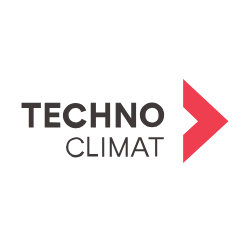
Grant and FundingOpen
Technoclimat
Environnement Québec (MELCC)Financial assistance for the demonstration of new technologies in Quebec
Eligible Funding
- Maximum amount : 3,000,000 $
- Up to 50% of project cost
Eligible Industries
- Agriculture, forestry, fishing and hunting
- Utilities
- Construction
- Manufacturing
Types of eligible projects
TechnologyEnvironment and ClimateInnovation

Grant and FundingExpert AdviceOpen
FABconstruction – Stream 2 : Support for productivity enhancement
Digital Governance Institute (IGN)Supports productivity and sustainability in modular construction companies
Eligible Funding
- Maximum amount : 25,000 $
- Up to 50% of project cost
Eligible Industries
- Construction
- Manufacturing
Types of eligible projects
TechnologyEnvironment and ClimateHuman ResourcesInnovationDigital Transformation

Grant and FundingExpert AdviceOpen
FABconstruction – Stream 1 : Business process analysis and action plan
Digital Governance Institute (IGN)Expert guidance for optimizing modular and off-site construction processes
Eligible Funding
- No Condition
Eligible Industries
- Agriculture, forestry, fishing and hunting
- Construction
- Manufacturing
Types of eligible projects
TechnologyEnvironment and ClimateHuman ResourcesInnovationDigital Transformation

Partnering and CollaborationGrant and FundingExpert AdviceSuspended
Financial support to assess your energy use Hydro Quebec
Hydro-QuébecUp to $50,000 for energy performance analysis and optimization
Eligible Funding
- Maximum amount : 50,000 $
- Up to 40% of project cost
Eligible Industries
- Utilities
- Construction
- Manufacturing
- Wholesale trade
Types of eligible projects
Environment and Climate

Grant and FundingOpen
Enbridge Gas Quebec — Custom-made project
Enbridge Gas QuebecSupports energy-saving projects using natural gas in buildings
Eligible Funding
- Maximum amount : 75,000 $
- Up to 40% of project cost
Eligible Industries
- Utilities
- Construction
- Manufacturing
- Wholesale trade
Types of eligible projects
Environment and Climate

Tax CreditsOpen
Additional deduction for transportation costs for manufacturing SMEs
Revenu QuébecTax deduction for manufacturing SMEs' transportation costs in remote areas
Eligible Funding
- Up to 25% of project cost
Eligible Industries
- Manufacturing
Types of eligible projects

Grant and FundingClosed
Wood Innovation Program — Component 2
Gouvernement du QuébecSupports innovative industrial projects using lower-grade Quebec wood
Eligible Funding
- From $200,000 to $1,000,000
- Up to 25% of project cost
Eligible Industries
- Agriculture, forestry, fishing and hunting
- Manufacturing
- Professional, scientific and technical services
- Educational services
Types of eligible projects
TechnologyInnovation

Grant and FundingClosed
Wood Innovation Program - component 1
Gouvernement du QuébecSupports innovation and investment in Quebec's forest industry
Eligible Funding
- From $200,000 to $2,500,000
- Up to 50% of project cost
Eligible Industries
- Agriculture, forestry, fishing and hunting
- Manufacturing
Types of eligible projects
Innovation

Grant and FundingArchived
Ambition-Compétences — Training for resilience and competitiveness in employment
Commission des partenaires du marché du travail (CPMT)Enhances workforce skills amid economic challenges
Eligible Funding
- Up to 85% of project cost
Eligible Industries
- Agriculture, forestry, fishing and hunting
- Manufacturing
- Transportation and warehousing
Types of eligible projects
Human Resources

Grant and FundingClosed
Aid measure for the decarbonization of Quebec's industrial sector (MADI)
Environnement Québec (MELCC)Supports Quebec industrial decarbonization projects for reduced GHG emissions
Eligible Funding
- No Condition
Eligible Industries
- Mining, quarrying, and oil and gas extraction
- Manufacturing
Types of eligible projects
TechnologyEnvironment and ClimateInnovation

Grant and FundingOpen
Regions and Rurality Fund (RRF) - Component 1 - Support for regional outreach
Gouvernement du QuébecSupports regional projects impacting Quebec's territories and communities
Eligible Funding
- From $100,000 to $3,000,000
- Up to 80% of project cost
Eligible Industries
- Agriculture, forestry, fishing and hunting
- Utilities
- Construction
- Manufacturing
Types of eligible projects
Environment and ClimateInnovation

Grant and FundingExpert AdviceOpen
Grant for a circular economy assessment
City of Montreal (MTL)Supports businesses in Montreal adopting circular economy practices
Eligible Funding
- Maximum amount : 15,000 $
- Up to 75% of project cost
Eligible Industries
- Manufacturing
- Professional, scientific and technical services
- Administrative and support, waste management and remediation services
- Other services (except public administration)
Types of eligible projects
Environment and Climate

Grant and FundingOpen
Wood Construction Innovation Program
Gouvernement du QuébecSupports innovative use of wood in sustainable construction projects
Eligible Funding
- From $400,000 to $2,500,000
- Up to 50% of project cost
Eligible Industries
- Agriculture, forestry, fishing and hunting
- Construction
- Manufacturing
- Public administration
Types of eligible projects
Environment and ClimateInnovation
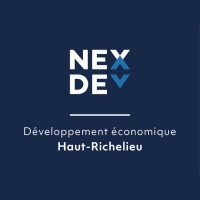
Grant and FundingExpert AdviceOpen
Productivity and Sustainable Innovation Fund – Stream 1: Company consultations/micro-diagnosis and selection assistance
NexDev | Haut-Richelieu Economic DevelopmentFinancial support for productivity and innovation in local industries
Eligible Funding
- Maximum amount : 10,000 $
- Up to 50% of project cost
Eligible Industries
- Manufacturing
- Wholesale trade
- Transportation and warehousing
- Other services (except public administration)
Types of eligible projects
Artificial Intelligence (AI)TechnologyInnovationDigital Transformation

Grant and FundingExpert AdviceOpen
Productivity and Sustainable Innovation Fund – Component 2: Feasibility study - audit towards a 4.0 transition
NexDev | Haut-Richelieu Economic DevelopmentFinancial support for industrial digital transformation and productivity improvement
Eligible Funding
- Maximum amount : 5,000 $
- Up to 50% of project cost
Eligible Industries
- Manufacturing
- Wholesale trade
- Transportation and warehousing
Types of eligible projects
TechnologyInnovationDigital Transformation

Grant and FundingOpen
ÉcoPerformance — Implementation of large industrial projects
Environnement Québec (MELCC)Financial support for large-scale industrial projects
Eligible Funding
- Up to 75% of project cost
Eligible Industries
- Manufacturing
Types of eligible projects
Environment and Climate

Loans and Capital investmentsClosed
DEL — Equipment and Technology Loan
Développement économique de l'agglomération de Longueuil (DEL)Enhance business efficiency through financing equipment and technology investments
Eligible Funding
- Maximum amount : 150,000 $
- Up to 50% of project cost
Eligible Industries
- Manufacturing
Types of eligible projects
Technology

Loans and Capital investmentsOpen
Rouyn-Noranda — FLI-FLS – Entrepreneurial Succession
City of Rouyn-NorandaFLI-FLS funds projects and entrepreneurial succession in Rouyn-Noranda
Eligible Funding
- Maximum amount : 250,000 $
- Up to 5% of project cost
Eligible Industries
- Agriculture, forestry, fishing and hunting
- Manufacturing
- Arts, entertainment and recreation
- Accommodation and food services
Types of eligible projects
CommercializationConstruction and Renovation Business BuyoutDigital Transformation
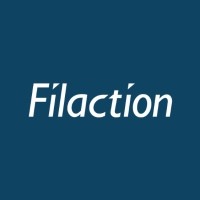
Loans and Capital investmentsOpen
Mosaic Fund
FilactionBusiness loans for Quebec's cultural communities entrepreneurs
Eligible Funding
- From $50,000 to $500,000
Eligible Industries
- Construction
- Manufacturing
- Wholesale trade
- Retail trade
Types of eligible projects
Business Buyout
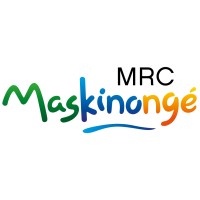
Grant and FundingOpen
MRC Maskinongé — Young Entrepreneurs
MRC de MaskinongéYouth Entrepreneur Fund supports young business creation and acquisition
Eligible Funding
- Maximum amount : 14,000 $
Eligible Industries
- Manufacturing
Types of eligible projects
Business Buyout

Grant and FundingOpen
MRC des Chenaux — Young Promoters Fund
MRC des ChenauxSupport for young entrepreneurs in MRC des Chenaux
Eligible Funding
- Maximum amount : 11,000 $
- Up to 80% of project cost
Eligible Industries
- Agriculture, forestry, fishing and hunting
- Manufacturing
- Professional, scientific and technical services
- Arts, entertainment and recreation
Types of eligible projects
Business Buyout

Loans and Capital investmentsOpen
DEL — Business Acquisition Loan
Développement économique de l'agglomération de Longueuil (DEL)Supports entrepreneurs acquiring businesses for succession and ownership transfer
Eligible Funding
- Maximum amount : 150,000 $
- Up to 25% of project cost
Eligible Industries
- Agriculture, forestry, fishing and hunting
- Mining, quarrying, and oil and gas extraction
- Utilities
- Construction
Types of eligible projects
Business Buyout

Loans and Capital investmentsOpen
Rouyn-Noranda — Local Investment (FLI) and Solidarity (FLS) Funds
City of Rouyn-NorandaOffers business loans up to $250,000 from FLI-FLS
Eligible Funding
- Maximum amount : 250,000 $
- Up to 20% of project cost
Eligible Industries
- Agriculture, forestry, fishing and hunting
- Manufacturing
- Accommodation and food services
- Other services (except public administration)
Types of eligible projects
Environment and ClimateConstruction and Renovation Business Buyout

Grant and FundingClosed
Rural Vitality Fund – Automation and Digital Practices
NexDev | Haut-Richelieu Economic DevelopmentFinancial support for rural businesses advancing automation and digitalization
Eligible Funding
- From $1,000 to $5,000
- Up to 10% of project cost
Eligible Industries
- Manufacturing
- Retail trade
- Other services (except public administration)
- Public administration
Types of eligible projects
TechnologyDigital Transformation
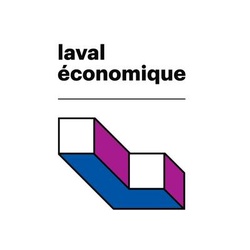
Grant and FundingClosed
Laval économique — Tech shift – Manufacturing
Laval EconomiqueDigital transformation grants for Laval manufacturers
Eligible Funding
- Maximum amount : 75,000 $
- Up to 25% of project cost
Eligible Industries
- Manufacturing
Types of eligible projects
Artificial Intelligence (AI)Digital Transformation

Grant and FundingOpen
Enbridge Gas Quebec — Cash incentives – Innovation
Enbridge Gas QuebecSupports innovative projects for natural gas efficiency and GHG reduction
Eligible Funding
- Maximum amount : 25,000 $
- Up to 75% of project cost
Eligible Industries
- Utilities
- Manufacturing
- Professional, scientific and technical services
- Educational services
Types of eligible projects
Environment and ClimateInnovation

Other SupportOpen
Temporary Foreign Worker Program (TFW) — Positions in QC
Employment and Social Development Canada (ESDC)Skilled foreign workers for Quebec companies
Eligible Funding
- No Condition
Eligible Industries
- Agriculture, forestry, fishing and hunting
- Construction
- Manufacturing
- Retail trade
Types of eligible projects
Human Resources
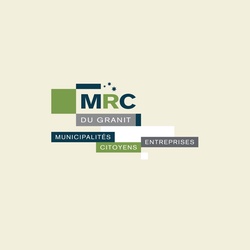
Loans and Capital investmentsOpen
MRC du Granit — FIL
MRC du GranitLocal investment fund supporting entrepreneurial development in Granit
Eligible Funding
- No Condition
Eligible Industries
- Manufacturing
Types of eligible projects
CommercializationBusiness BuyoutInnovation

Loans and Capital investmentsOpen
MRC L'Islet — Local investment fund (FLI / FLS)
MRC de L'IsletLocal funds support business startup, expansion, and consolidation
Eligible Funding
- Maximum amount : 150,000 $
- Up to 20% of project cost
Eligible Industries
- Agriculture, forestry, fishing and hunting
- Mining, quarrying, and oil and gas extraction
- Manufacturing
- Arts, entertainment and recreation
Types of eligible projects
Construction and Renovation Business Buyout

Loans and Capital investmentsOpen
Rouyn-Noranda — FLI Succession
City of Rouyn-NorandaFunding tools for enterprise growth in Rouyn-Noranda
Eligible Funding
- Maximum amount : 250,000 $
- Up to 5% of project cost
Eligible Industries
- Agriculture, forestry, fishing and hunting
- Manufacturing
- Other services (except public administration)
- Public administration
Types of eligible projects
CommercializationConstruction and Renovation Business BuyoutDigital Transformation
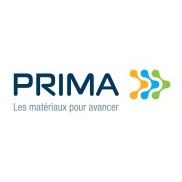
Partnering and CollaborationGrant and FundingClosed
PRIMA — SI2TEC – Feasibility Studies
Advanced Materials Research and Innovation Hub (PRIMA)Supports feasibility studies for circular economy projects in Québec
Eligible Funding
- Maximum amount : 75,000 $
- Up to 50% of project cost
Eligible Industries
- Manufacturing
- Professional, scientific and technical services
- Administrative and support, waste management and remediation services
Types of eligible projects
TechnologyEnvironment and ClimateInnovation

Grant and FundingWage Subsidies And InternsClosed
Regional Initiatives Fund (FAIR)
Ministère de l'économie, de l'innovation et de l'énergie du Québec (MEIE)Supports economic development and innovation in Gaspésie–Îles-de-la-Madeleine region
Eligible Funding
- Maximum amount : 150,000 $
- Up to 90% of project cost
Eligible Industries
- Agriculture, forestry, fishing and hunting
- Utilities
- Construction
- Manufacturing
Types of eligible projects
CommercializationTechnologyEnvironment and ClimateHuman ResourcesInnovation

Grant and FundingClosed
Economic Diversification Fund (FDE) for the MRC des Sources territory
Ministère de l'économie, de l'innovation et de l'énergie du Québec (MEIE)Supports economic diversification and business development in MRC des Sources
Eligible Funding
- No Condition
Eligible Industries
- Construction
- Manufacturing
- Wholesale trade
- Retail trade
Types of eligible projects
Human ResourcesInnovation

Grant and FundingClosed
SME in action
Ministère de l'économie, de l'innovation et de l'énergie du Québec (MEIE)Supports Quebec SMEs in productivity, growth, and competitiveness
Eligible Funding
- No Condition
Eligible Industries
- Manufacturing
Types of eligible projects
TechnologyHuman ResourcesBusiness BuyoutInnovationDigital Transformation

Researchers And FacilitiesExpert AdviceOpen
Synchronex
CCTT Network - SynchronexResearch centres and technical experts across Quebec
Eligible Funding
- No Condition
Eligible Industries
- Agriculture, forestry, fishing and hunting
- Manufacturing
- Transportation and warehousing
- Professional, scientific and technical services
Types of eligible projects
Technology

Other SupportClosed
Circular Initiatives Awards
Circular QuébecRecognizes innovative circular economy initiatives across Quebec organizations
Eligible Funding
- No Condition
Eligible Industries
- Manufacturing
- Administrative and support, waste management and remediation services
- Educational services
- Other services (except public administration)
Types of eligible projects
Environment and ClimateInnovation

Grant and FundingClosed
2023 Call for Proposals
Employment and Social Development Canada (ESDC)Funds to support youth volunteer programming and micro-projects
Eligible Funding
- Maximum amount : 8,000,000 $
Eligible Industries
- Agriculture, forestry, fishing and hunting
- Mining, quarrying, and oil and gas extraction
- Utilities
- Construction
Types of eligible projects

Grant and FundingClosed
BOLT Grant Program
Internet Society FoundationSupports projects expanding global Internet connectivity through prototypes and pilots.
Eligible Funding
- Maximum amount : 300,000 $
Eligible Industries
- Agriculture, forestry, fishing and hunting
- Mining, quarrying, and oil and gas extraction
- Utilities
- Construction
Types of eligible projects

Grant and FundingArchived
Technology showcase program for buildings and innovative wood solutions
Gouvernement du QuébecSupports innovative wood construction to reduce greenhouse gas emissions
Eligible Funding
- Maximum amount : 1,000,000 $
- Up to 50% of project cost
Eligible Industries
- Agriculture, forestry, fishing and hunting
- Construction
- Manufacturing
Types of eligible projects
TechnologyEnvironment and ClimateInnovation

Grant and FundingClosed
PRIMA — PARTENAR-IA — Academic
Advanced Materials Research and Innovation Hub (PRIMA)Funding for Quebec R&D collaborations in AI for advanced materials
Eligible Funding
- Maximum amount : 500,000 $
- Up to 50% of project cost
Eligible Industries
- Manufacturing
Types of eligible projects
Artificial Intelligence (AI)

Tax CreditsArchived
Capital Synergie
Investissement Québec (IQ)Supports business investment in innovative, high-growth Quebec companies
Eligible Funding
- Maximum amount : 225,000 $
- Up to 30% of project cost
Eligible Industries
- Manufacturing
- Information and cultural industries
- Professional, scientific and technical services
Types of eligible projects
Artificial Intelligence (AI)TechnologyEnvironment and ClimateInnovation
Frequently asked questions about wood manufacturing grants in Quebec
Here are clear answers to common questions about Quebec wood industry funding, including automation, energy efficiency, decarbonization, R&D, and export programs.
What types of projects do Quebec wood manufacturing grants fund?
Which programs support mass timber and CLT in Quebec?
Are energy efficiency and decarbonization projects eligible?
How do Quebec grants treat stacking and matching funds?
What evidence strengthens a wood grant application in Quebec?
Can furniture and millwork SMEs receive Quebec grants?
Which grants support biomass and residue valorization?
Do Quebec grants cover certifications like FSC or PEFC?
How long do wood grant approvals take in Quebec?
Can I combine grants with SR&ED and the C3i tax credit?
What else should I know about Wood Manufacturing Grants in Quebec?
Find similar grants
By Funding Type
By Business Size
By Service
By Audience
By Industry
Education Grants in Quebec
Grants and Funding for Culture in Quebec
Grants and Funding for Financial Services in Quebec
Grants and Funding for Green Manufacturing and Decarbonization in Quebec
By Industry Subsectors
By Administrative Region
Grants and Funding in Abitibi-Témiscamingue
Grants and Funding in Bas-Saint-Laurent
Grants and Funding in Capitale-Nationale
Grants and Funding in Centre-du-Québec
Grants and Funding in Chaudière-Appalaches
Grants and Funding in Côte-Nord